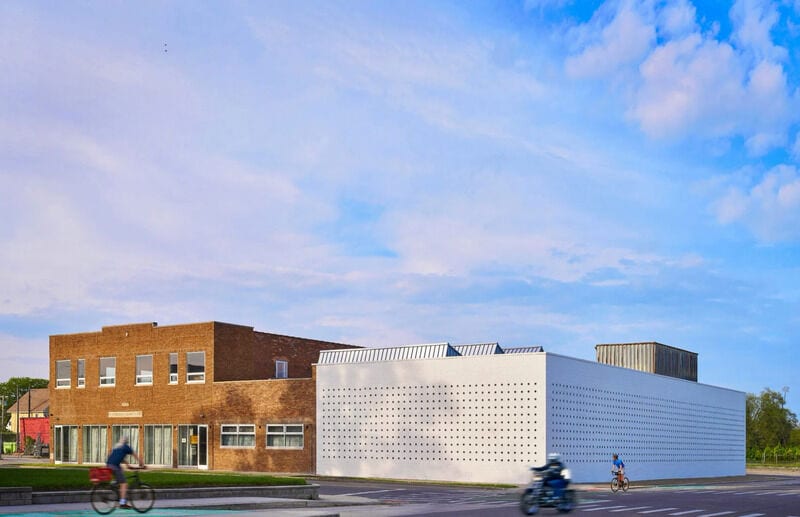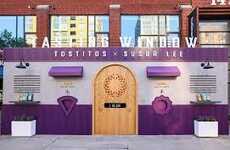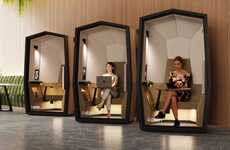
OMA Converts 1900s Bakery into the Lantern Art Building
Amy Duong — May 22, 2024 — Art & Design
Dutch design studio OMA converted a bakery and warehouse first built in the early 1900s into what is now the Lantern arts center. The space is defined by the 1,000 windows as a part of the overarching Little Village development project. It takes up about 22,300 square geet of space for two art-centric non-profits along with areas for retail and studios followed by a large courtyard.
This entire project is made up of three buildings with brick making up the older ones and Concrete Masonry Unit for the latest. OMA partner Jason Long speaks about the design, stating "We are excited to start seeing the Lantern come to life. In the renovation, we tried to work both with and against the former bakery's solidity to make its transformation feel simultaneously familiar and mysterious. The result is a building that welcomes and emits light and creativity."
Image Credit: Jason Keen
This entire project is made up of three buildings with brick making up the older ones and Concrete Masonry Unit for the latest. OMA partner Jason Long speaks about the design, stating "We are excited to start seeing the Lantern come to life. In the renovation, we tried to work both with and against the former bakery's solidity to make its transformation feel simultaneously familiar and mysterious. The result is a building that welcomes and emits light and creativity."
Image Credit: Jason Keen
Trend Themes
1. Adaptive-reuse Architecture - Transforming historical buildings into modern spaces can preserve cultural heritage while creating vibrant new community hubs.
2. Art-centric Urban Development - Integrating art spaces within urban development projects can invigorate neighborhoods and foster local art scenes.
3. Multi-functional Cultural Spaces - Combining areas for artistry, retail, and public gatherings within single structures can maximize space utility and enhance community engagement.
Industry Implications
1. Design and Architecture - Opportunities exist for architects and designers to innovate by blending historical aesthetics with contemporary functionality.
2. Urban Redevelopment - Urban developers can capitalize on transforming unused or underutilized buildings into culturally significant landmarks.
3. Arts and Culture - The arts sector can benefit from creating multi-use spaces that support both artistic creation and community interaction.
2.4
Score
Popularity
Activity
Freshness























